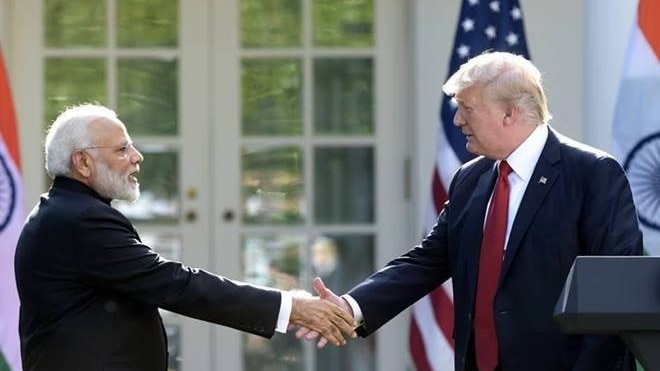Following the U.S.’s decision to impose a 25% tariff on Indian goods, the Ministry of External Affairs emphasised that despite trade disagreements, India and the United States continue to share a robust and growing defence relationship.
“We have a strong defence partnership with the U.S., which has been strengthening over the years,” MEA spokesperson Randhir Jaiswal said at a media conference on Friday.
He added that the partnership holds greater potential under the India-U.S. COMPACT for the 21st century. It added that the India-US partnership has weathered several transitions and challenge.
The comment signals New Delhi’s intent to keep strategic ties on track, even as economic friction escalates under Washington’s new trade stance.
On reports of India stopping Russian oil purchase, Jaiswal said: “Our energy sourcing decisions are guided by what is the best offer available in the market, taking into account the prevailing global situation.”
He further added that the Centre had taken note of Donald Trump’s announcement of 25% tariffs on Indian exports and it is studying and reviewing the move, while choosing not to respond to the US President’s “dead economy” remarks. “We have nothing to say,” Jaiswal added.
Trump has warned of tariffs as high as 100% on nations continuing to purchase Russian oil if Moscow fails to strike a peace deal with Ukraine by August 7–9. A 25% tariff on all Indian exports to the US has taken effect from today (August 1).
Since 2022, India has emerged as the largest purchaser of Russian oil globally, surpassing even China and Turkey. As the third largest oil importer in the world, India now acquires up to 2 million barrels per day, constituting approximately 2% of the global supply.
According to government data, India’s dependence on Russian oil imports has reached 35%, amounting to $50.2 billion in the fiscal year 2024-25. The variety of Russian oils purchased by India includes Urals from Western ports, ESPO and Sokol from the Pacific, and some grades from the Arctic, as indicated by LSEG data.
As a result, India may need to increase imports of U.S. and Middle Eastern crude or reduce refining operations, potentially leading to a surge in diesel prices. This could have repercussions for Europe, which imports fuel from India.
(With Reuters inputs)







